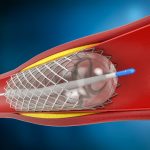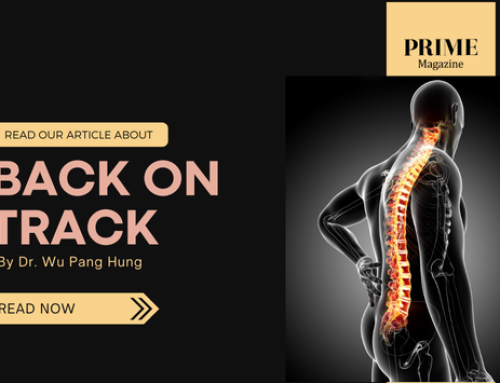Is Gut Health the New Target in Anti-Ageing?
Being born in 1965, I have had the unique privilege of growing old together with Singapore every step of the way. Having recently turned 55, I am now officially a citizen “senior” enough to be trusted with my own retirement CPF money. I am grateful that I am in good health, mentally sound and still have the sense of humor to appreciate the occasional backhanded “you look good for your age” compliment.
Singapore has aged well too. Our infrastructure is strong and handsome. The governance is politically and economically sound. It was recently reported that Singapore has now topped the world in longevity, with an expected lifespan at birth of 84.8 years. This translates to an increase in life expectancy of 15 years between 1970 and today. However, the ageing population demographic is also a considerable challenge to our society; one that has to be managed proactively and well ahead of future demands.
 One major issue that senior citizens may encounter is the burden of chronic diseases that accompanies ageing. Longevity is of little value if it is riddled with dementia, disabilities and illness. Fortunately, just as successful nation building can be achieved with orderly planning, ageing is not a process that is inevitable and simply happens by chance. Although eternal youth is still a distant dream, we now know that ageing healthily can be achieved by understanding the precise molecular mechanisms that regulate ageing.
One major issue that senior citizens may encounter is the burden of chronic diseases that accompanies ageing. Longevity is of little value if it is riddled with dementia, disabilities and illness. Fortunately, just as successful nation building can be achieved with orderly planning, ageing is not a process that is inevitable and simply happens by chance. Although eternal youth is still a distant dream, we now know that ageing healthily can be achieved by understanding the precise molecular mechanisms that regulate ageing.
INSIGHTS INTO THE AGEING PROCESS
Ageing is a highly complex process that affects a wide array of physiological, genomic, metabolic and immunological functions. It is controlled by genetic pathways and biochemical processes that lead to progressive loss of physiological integrity, impaired function, and susceptibility to diseases and death.
Some insights into the science of ageing have recently come from a simple organism that has been long used in the study of developmental biology and genetics. The Caenorhabditis elegans is a tiny 1mm worm that is transparent and allows the fate of every cell in its body to be examined over the duration of its short life span of 2 to 3 weeks.
Interestingly, researchers have found that as C. elegans ages, it develops pathologies that all seem to be related to a root cause: gastrointestinal ageing. Moreover, any treatment that is successful in increasing the lifespan of the worm work by suppressing intestinal ageing. By feeding the worm different strains of intestinal bacteria, it was also found that certain bacterial mutants overproduce substances that increase longevity by stimulating the energy powerhouse in cells called mitochondria. Other bacterial mutants seem to be protective against tumor formation and the accumulation of a compound called amyloid-beta that is found in Alzheimer’s disease.
Can gastrointestinal ageing play a role in human ageing and age-related functional decline? Can the tiny bacteria that live in our gut have such a profound effect on our bodies?
THE IMPORTANCE OF GUT HEALTH
Consider this. Human cells only make up 43% of the cells in our body. The rest are made up from the 39 trillion microbial cells that live in our gut and skin. Microbial colonization of the human gut begins at birth, and the composition, diversity and stability of this microbiota evolves as we grow older, depending on factors such as the food we eat. The microbiota feed on the undigested fibre (prebiotics) in our diet and produce metabolites (such as short-chain fatty acids). This helps to provide energy for the cells that form the gastrointestinal barrier of the alimentary tract.
This so-called good bacteria in our gut microbiota helps to prevent colonization by potentially harmful bugs. A loss in microbiota diversity can lead to an increased permeability in the intestines. A “leaky gut” allows substances such as undigested food particles, toxins, waste and bacteria to enter the blood stream. This may lead to an autoimmune, allergic or inflammatory reaction in the body. Any other form of disruption to the gastrointestinal barrier, for example: illness, stress, medication and even a diet high in refined sugars and processed foods, can also have the same effect.
Our gut health is now believed to be related to conditions as diverse as skin eczema, arthritis, fatty liver, and obesity. High levels of leaked pro-inflammatory mediators in the blood can also cause neuro-inflammation in the brain. This can result in cognitive decline and neurological conditions such as mood, anxiety, depression, dementia and Parkinson’s disease.
As our gut ages, changes take place that lead to functional decline. The onset of age-related digestive tract disorders, changes in diet patterns, decrease in activity levels and an increased intake of drugs and antibiotics can all affect motility and digestive functions. More importantly, the diversity of microbiota in our gut reduces and there is an overgrowth of harmful bacterial opportunists.
This state of dysbiosis, or microbial imbalance in the gut, results in decreased availability of microbiota-related metabolites. Reduced short-chain fatty acid levels, in particular, are associated with a host of ageing related problems including frailty, cognitive decline, Vitamin D deficiency and bone loss, and the hallmark loss of muscle mass in ageing called sarcopenia.
KEEPING OUR GUT HEALTHY
Gut health is, therefore, a possible determinant of healthy ageing. It can also be a preventive target in anti-ageing as the promotion of good gut health is an achievable objective.
To keep our gut microbiota and gut barrier in a healthy balance, we should:
- Avoid diets high in processed foods (refined carbohydrates, sugar, processed meats and fats), seed oils and grains
- Increase intake of plant-based whole foods, including fermented foods that contain probiotics
- Avoid tobacco and medication such as antibiotics, pain killers and oral contraceptives
- Lead a healthy lifestyle with regular exercise
- Practise mindfulness & medication to reduce chronic stress
- Consume alcohol in moderation
Finally, go for periodic medical checkups with a gut specialist to assess your gut health. The specialist may prescribe probiotic supplements as they contain certain beneficial bacteria to boost the quality and diversity of your gut microbiota. Periodic screenings of gastroscopy and colonoscopy are also advised to check for chronic gastrointestinal disorders, and to treat precancerous polyps and conditions before they undergo malignant change.
Another important challenge we see as our gut ages is the problem we call the Nutrient Gap. As we grow older, our bodies require less calories and, as a consequence, we usually eat less. The type of processed foods that are easily available are calorie laden but nutrient poor. The ageing gut is less able to absorb these nutrients and a deficit arises in the provision of the micronutrients which our ageing cells requires. Our immune system breaks down and we become prone to infections and cancer. Oxidative damage to cells lead to age-related disease and disability.
This Nutrient Gap arises when our nutrient needs far exceed the declining supplies absorbed by our ageing gut. Some of the essential micronutrients that have been found to be important in anti-ageing include minerals, vitamins, amino acids, fatty acids, polyphenols, phytosterols and anti-oxidants. Including superfoods such as blueberries, salmon, kale and acai in our diet can help to meet some of these micronutrient needs. Alternatively, you can boost your intake with a wide array of supplements that can be found in the shelves of any good health food store. Simply do some research and you can easily find what you need.
LEADING A HAPPY LONG LIFE
To end with a personal anecdote, I have also researched and sought to offer my patients a convenient “all-in-one super nutrient” supplement to promote gut health and anti-ageing. I went with the mantra to “eat as low down the food chain as possible”. It was a year in the making but I was eventually satisfied with a product that is based on a primitive algae that evolved 500 million years ago called Euglena. As a plant-animal hybrid, it is rich in a wide array of micronutrients that are conveniently bioavailable as the organism does not have a cell wall.
Avoid diets that are high in processed foods such as refined carbohydrates, sugar, processed meats and fats
Interestingly, this algae is cultivated in the pristine waters of Okinawa, Japan, an area so well-known for its extraordinary health and longevity statistics that some have even called it the Land of Immortals. It is one of the so-called Blue Zones on our planet where we can find populations of happy, long-living people. Studies of these communities have found that they share many commonalities. They eat in moderation, with a predominantly plant-based whole food diet, and often practise calorie restriction and periodic fasting. They lead active lives, sleep as much as they need, consume alcohol in moderation, and have a good spiritual, family and social network. You may recall that these traits are similar to what we discussed about for good gut health. We have already learnt so much from worms, bacteria and algae. I am sure the future will bring further scientific evidence to reinforce the importance of gut health in anti-ageing.
Written by:
 Dr Melvin Look Director, PanAsia Surgery
Dr Melvin Look Director, PanAsia Surgery
Dr Melvin Look is the Director of PanAsia Surgery in Mount Elizabeth Hospital, Mount Elizabeth Novena Hospital and Parkway East Hospital. He is a Consultant Surgeon in Gastrointestinal, Laparoscopic and Obesity Surgery, and has a special interest in performing endoscopy and the treatment of digestive problems. He underwent various training awards at the National Cancer Center Hospital in Tokyo, Royal Infirmary of Edinburgh UK, Mount Sinai Medical Centre New York, and Washington Cancer Institute in Washington DC.











